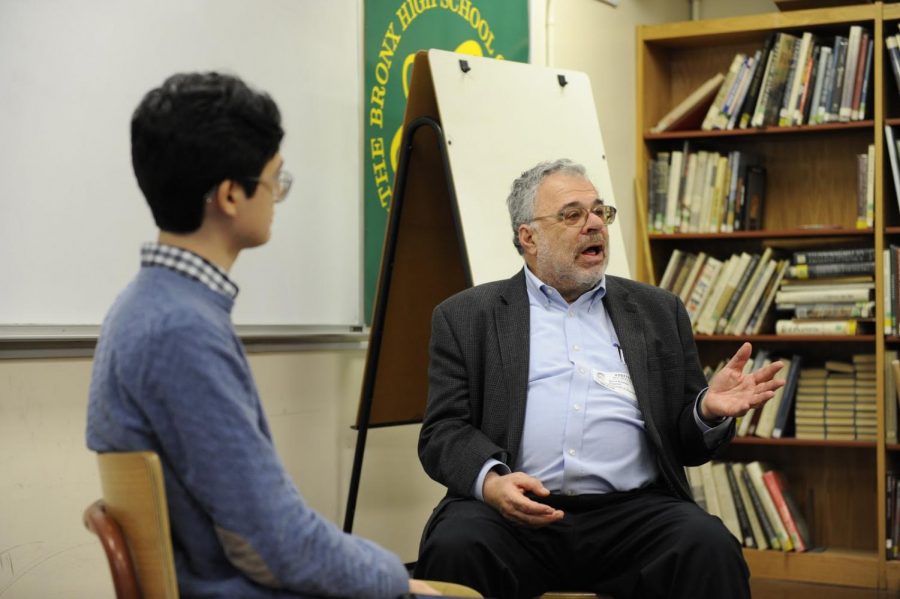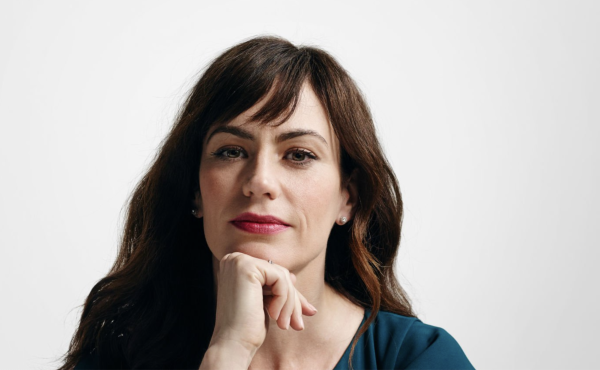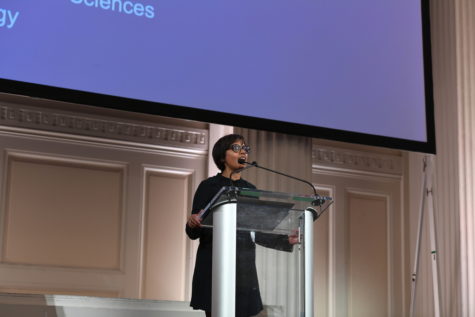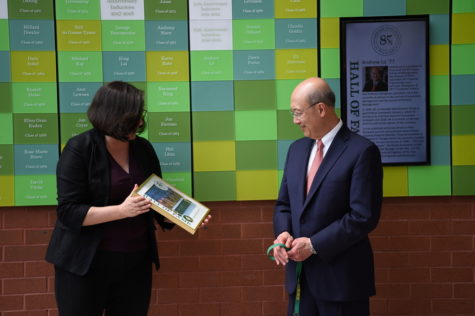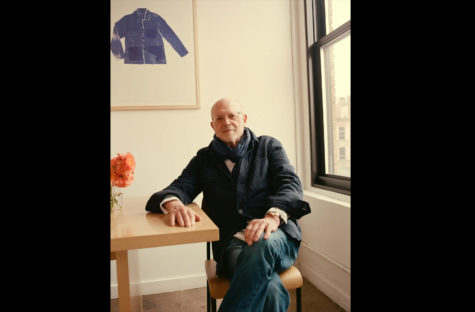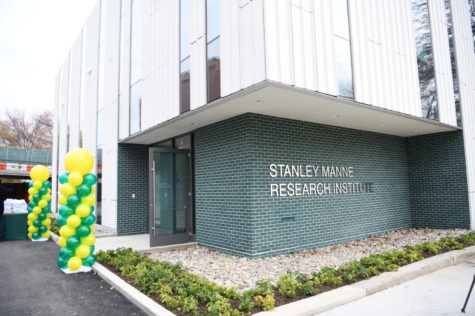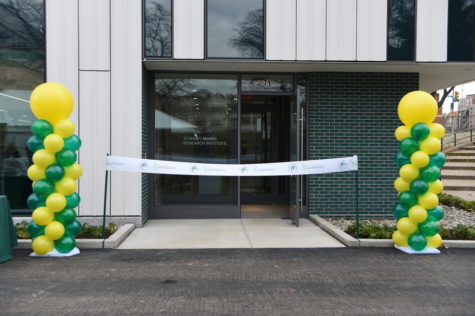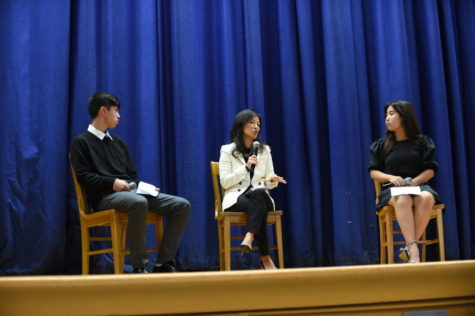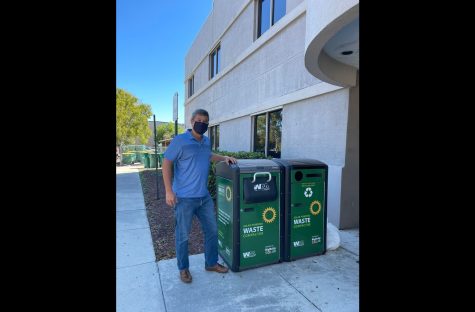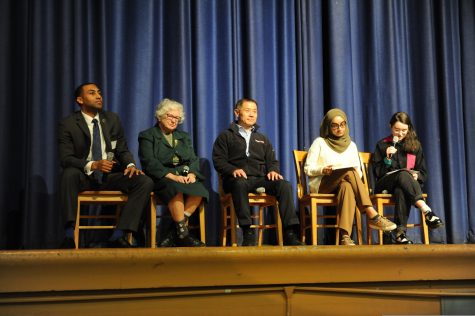David Botstein ’59
World Renowned Geneticist Returns
Maxwell Allison ‘18 interviews David Botstein ’59 in front of students about his career in the library multipurpose room.
On April 27, 2018, David Botstein ’59 came back to Bronx Science to be inducted into the Hall of Fame. Currently serving on the National Academy of Sciences and as the Chief Scientific Officer of Calico, Botstein is known as one of the world’s leading geneticists, and his research has been cited as the cornerstone of genomics.
Botstein’s interest in science first peaked as a boy scout at the age of ten. Motivated by merit badges, such as those in electronics and microbiology in particular, Botstein found himself fond of learning about different scientific subjects.
At Bronx Science, Botstein was interested in math. His biggest influence was Irving Allen Dodes, who was the head of the Mathematics department. As a part of the school’s Math Squad and Math Bulletin, his favorite memories are of hanging around the math office every free period with fellow classmates to talk about math, and following Dodes around.
When he graduated from Bronx Science at the age of 15, Botstein noted how Bronx Science had given him a head start compared to his classmates at Harvard. “I’m very fond of saying that I probably did as much math here as did in any classes thereafter. There was math I could do at 15 that the people I met at Harvard weren’t going to learn for another two years,” said Botstein.
Although he entered Harvard with the intention of becoming a physicist, Botstein realized that he did not want to be a small part of a big engineering team. He was eventually introduced to genetics, specifically phage genetics.“It was quantitative, there was lots of opportunity to think about quantitative things,” he said. “And you could do an experiment today and look at the result tomorrow and then interpret it, then do the next experiment.”
After getting his A.B. at Harvard and his Ph.D. from the University of Michigan, Botstein began to work as an instructor at the Massachusetts Institute of Technology. There, he was inspired to get into eukaryotic rather than prokaryotic genetics, which has been his focus ever since.
In 1980, Botstein and his colleagues published a paper in ‘The American Journal of Human Genetics’ proposing a method to map human genes. Botstein notes this as his greatest accomplishment.
“The paper proposed the basis for finding out, by using the natural variation among the genomes of species, which segments of genome were inherited from your mother and which from your father and that way you could trace any gene that was linked,” Botstein explained. “Within a few years people were mapping genes all over the place. And it’s still a piece of the foundation of genomics.”
Botstein and his colleagues were also the first to characterize tumors using microarrays and use methods of analysis to distinguish several subtypes of tumors. This practice is now common in the medical field.
Teaching has played a positive part in Botstein’s career and life. He has been an assistant professor at MIT, the Chairman of the Department of Genetics at Stanford University, and is currently the director of the Integrated Science Program at Princeton University. At Princeton, he established a new introductory science curriculum that combines biology, physics, chemistry, and computer science.
Botstein noted, “Without a doubt, the best thing about teaching is getting into the student’s head and seeing the light bulb go on when you explain something to them that you know they didn’t know, and that’s a great experience for everybody. It’s a great experience for the student, and it’s a great experience for the teacher.”
For the future researchers and scientists of Bronx Science, Botstein predicts that the future will be quantitative. “Students need to have a real facility with coding, especially in two areas, statistics and DNA data, knowing that not everything works out as a pie chart,” Botstein advised.
Currently, Botstein is the Chief Scientific Officer of Calico. There, scientists are working on trying to understand the biology of aging and why people grow old.
If Botstein could give advice to his high school self, he would tell himself to spend more time in a research lab. He also advises current students to not focus on the numeric grades, saying, “I would reinforce that when I went to college, it became clear to me that what was important was what I understood and not what grades I got there.”
When reflecting on his experience revisiting his high school fifty-nine years after graduating, Botstein was delighted to find that Bronx Science hasn’t changed. “This is still a serious place and full of serious people who are seriously interested in science, and who are not just doing it for career but because but they are actually thinking and are interested in these issues, and I think it’s terrific,” Botstein said.
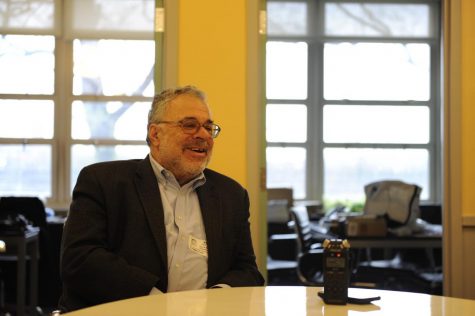
David Botstein ’59 speaks with students in the alumni office about his research and accomplishments.
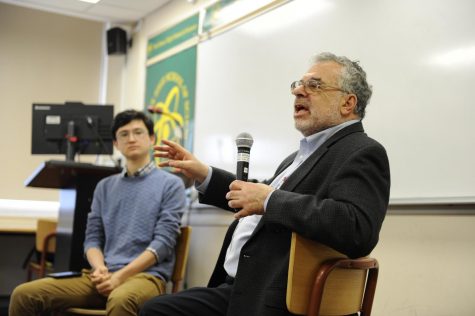
In a room full of excited students, David Botstein ’59 speaks about his career and offers advice.
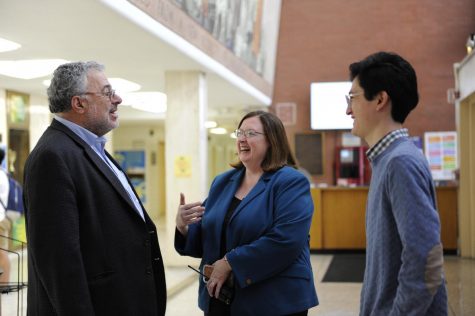
Dr. Donahue meets with David Botstein ’59 before he is officially inducted into the Hall of Fame.
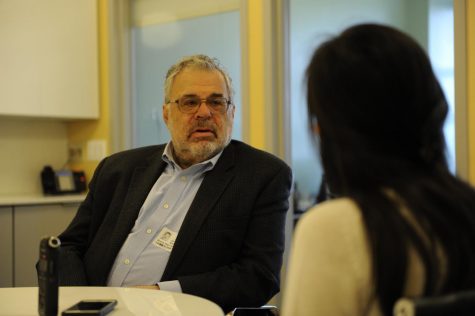
David Botstein ’59 speaks with Brianna Le ’18 in an interview for The Science Survey.
Brianna Le is the Managing Editor/Advisory Editor/Copy Chief for ‘The Science Survey’ and Groups Section Editor for ‘The Observatory.’ In her third...
Johan Wichterle is a Chief Photographer and Photography Editor for ‘The Science Survey’ and ‘The Observatory.’ Throughout his life, Johan...
Alexis Pan is a Chief Photographer and Photography Editor for ‘The Science Survey’ and ‘The Observatory.’ Alexis’ mother inspired Alexis to begin...

